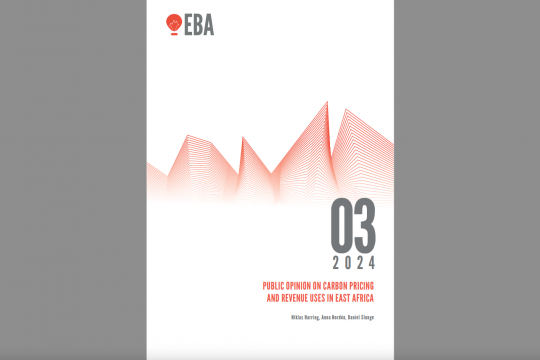Foreword by EBA
The ongoing climate crisis calls for radically reduced emissions of greenhouse gases. Although low- and lower-middle-income countries may have small or minimal climate footprints compared to richer countries, reductions are key also in those countries, not least since future consumption is likely to increase with increasing economic growth and population.
The most common way to reduce emissions is to decrease subsidies or increase prices on fossil fuels. However, such reforms often come at a price in the form of negative reactions and opposition from vast groups of citizens. Hence, to assess the feasibility of reduced emissions, it is important to know how the public is likely to react. Several studies of public opinion on environmental policies have been conducted in OECD countries. In African countries, however, such knowledge is rare.
The Swedish government has announced an increase in Swedish climate aid, with the primary purpose of more effectively contribute to reduced greenhouse gas emissions. Hence, the current study provides timely findings about public opinions in three East African countries. And what kind of interventions are relevant to support with development assistance?
We believe this report will be of use to staff at Swedish embassies in the East African region when deciding what policies to support, and what dialogues to pursue with national governments in the three countries. We also believe the report may inform staff within the Ministry for Foreign Affairs and Sida, as it contributes to filling a knowledge gap. The study has been conducted with support from a reference group chaired by Johan Schaar, who previously served as vice chair of EBA.
The authors are solely responsible for the content of the report.
Stockholm, March 2024
Torbjörn Becker, EBA chair
Johan Schaar



